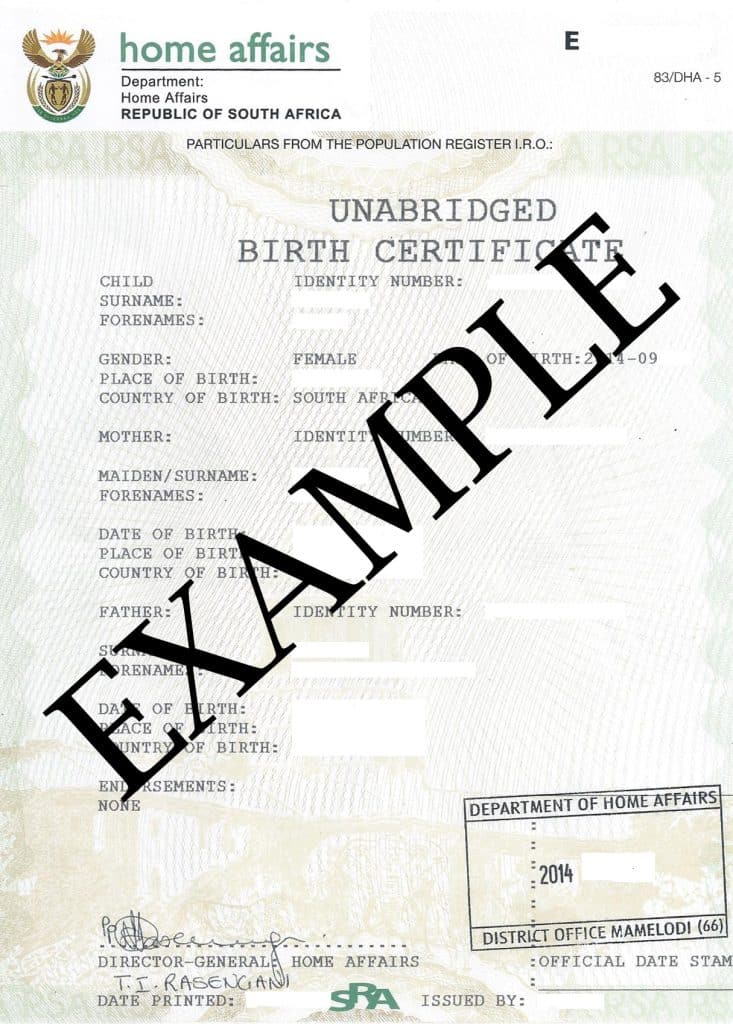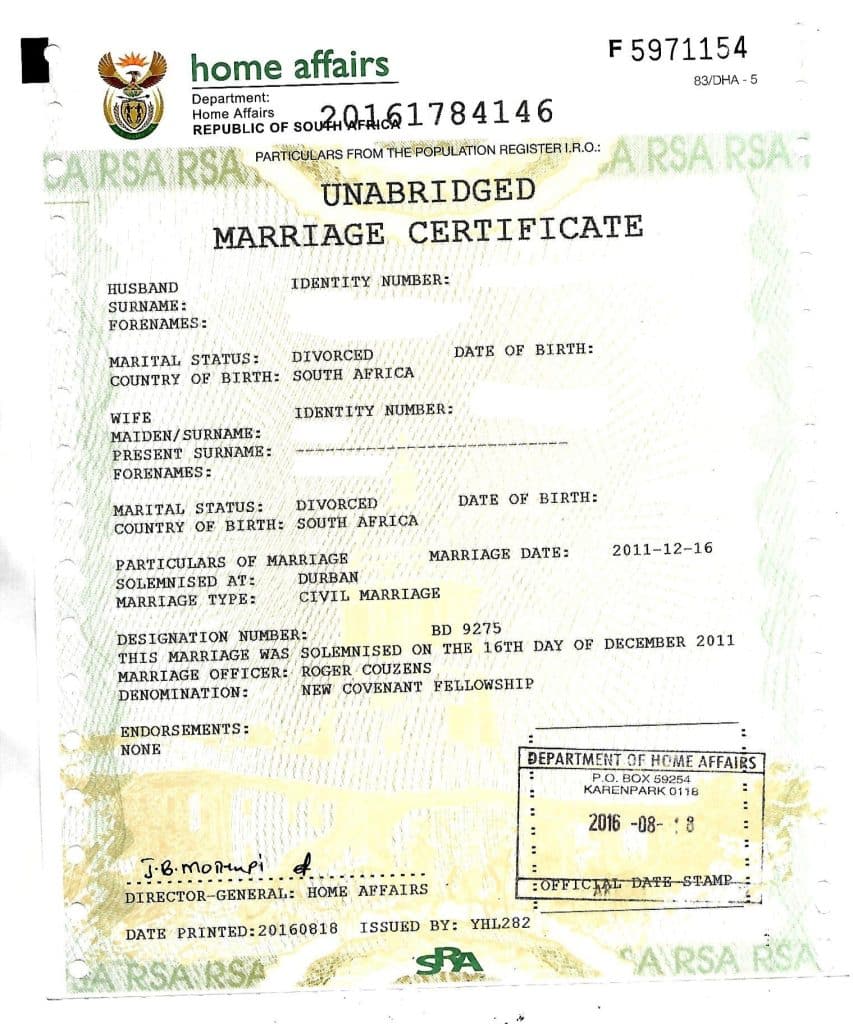Immigrating to a new country is an exciting and life-changing decision. However, it also comes with a significant amount of paperwork and documentation requirements. It does not matter which Visa category or channel you are using to enter the US, understanding the necessary documents is crucial to ensure a smooth immigration process. Immigrant visa applicants are required to submit certain civil documents as part of their visa application, such as birth certificates and police records. (Nonimmigrant visa applicants do not routinely need to submit civil documents as part of their visa application.)
So, if you are busy or looking at an Immigrant Visa, make sure that you have these documents ready:
Unabridged Birth certificate:
Unabridged birth certificates became a standard requirement for travel with children in South Africa in 2015. If your child was born after 14 March 2013, you should have an Unabridged Birth Certificate. The introduction of unabridged birth certificates meant that both parents’ details, including their full names, would be included on the child’s birth certificate.
This is not just for children but applicable to ALL ages, you require a standard unabridged birth certificate.
Now what is the difference between the old and new? Whereas the Unabridged Birth Certificate is simply an officially recognized and issued printout of one’s birth record as it has been captured on the South African Birth and Death Register at the department of Home Affairs, the Vault or abridged Birth Certificate is a stamped and signed copy of the original handwritten forms and doesn’t contain all the information.

Unabridged Marriage Certificate:
Similar to that of the birth certificate, the unabridged marriage certificate contains more information than the abridged marriage certificate. Full marriage certificates (unabridged) offer more proof of the marriage and can be used in any legal processes.

Proof of termination of all prior marriages of your spouse (divorce decree(s), annulment(s), or death certificate(s)
Make sure that you have the original documentation with you. Always include Certified copies of the original.
Police, Court and Prison Records:
Police Clearance is needed for every person over 16 attached to the application. You need to present a Police Clearance Certificate for every country you ever lived in for more than six (6) months since you were sixteen (16) years of age, as well as for any country you were ever arrested in since you were sixteen, even if you were just there for one day.
The standard documents for obtaining a police clearance certificate vary by country. Generally, you will need to complete an application form, provide identification (e.g., passport or ID), and undergo fingerprinting. Proof of immigration status and address history, alongside an application fee, are typically required. The processing time varies, with results indicating any criminal history. Upon successful completion, a police clearance certificate is issued, confirming a clean record.
Court Requests should be addressed to the magistrate’s court in the magisterial district where the trial took place. The full name of the applicant and the date of the trial are required.
Prison Records should be included and obtained. For more detail on this, check in with us to further investigate and assist.
Military Records
Non-officers who served during World War II received discharge certificates on Discharge Form D.D.342, size 6-1/4 x 8-3/4″, inscribed in English on both sides, and which includes a description of the final discharge signed by the appropriate military official. Officers received release certificates on Release Form D.D.201, titled Release Certificate (Officer), size 8″ x 6-1/2″, inscribed in English on one side, Afrikaans on the other, bearing the dispersal office date stamp in the lower left-hand corner, and signed by the O.C., Dispersal Depot. Application must be made to the Chief of Staff, Personnel (War Records), P/B X281, Pretoria 0001. Full name, date of birth, and S.A. identity number and military number should be furnished. Persons who have served in the armed forces since World War II should write to the regiment to which they were attached, furnishing full name, date of birth and military number.
To get precise information, consult the immigration authorities or the relevant law enforcement agency, as requirements may change and differ between regions and nations.



